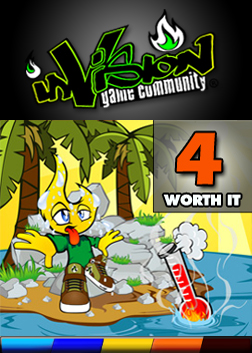I tread carefully around titles that pride themselves on sadism. There’s a thin line between challenging and difficulty levels which just exist as a “fuck you” to anyone who bothers playing them. There’s challenging, and then there’s just stupid.
On first glance Natural Doctrine looks fairly uninspired. Grimy, badly lit stages. Standard strategy RPG fare. But given time it actually delivers a really special experience.
You can totally annihilate your enemies – but make one wrong move and they can do the same in return. It’s punishing, but it’s fair – and that’s something a lot of challenging games get wrong. More often than not the challenge comes down to some ridiculously overpowered boss who can kill you in a single hit, but Natural Doctrine breaks the mold by giving you all the tools you need to dominate your enemies. If you lose, it’s entirely your fault. You advanced too aggressively. You didn’t pull the back end of your team together fast enough, or you tried to win by taking it slow.
Bad decisions are quickly punished in Natural Doctrine and as a result you have to learn the game’s mechanics or you just aren’t going to make any progress. Very little is left up to luck, and that’s refreshing in an RPG – actually having total control over your losses and victories makes you accountable. You can’t blame it on bad numbers or cheap shots. The game didn’t screw you over. You screwed yourself over. Now try again and don’t mess it up this time. It’s like the teacher we all wanted as kids – demanding the best from you and simply not allowing you to progress until you’ve achieved it.
Your characters are fairly standard. Warriors, gunners, mages and the like. The coolest party member is a little girl who controls a giant golem who can Hulk Smash things and act as a giant moving wall – allowing you to position your characters behind moving cover. If even one character dies it’s game over, and while this might seem brutal and excessive, it’s at the core of Natural Doctrine’s genius. You have to pay attention to where everyone is, monitor line of sight, and think about every turn. It makes you a better player because it doesn’t accept failure.
Combat is interesting. Zones are three dimensional and characters can only move within set squares as they advance – but they have free movement within those squares, allowing them to adjust line of sight, use cover, and – most importantly – position themselves for link attacks. The link attack mechanic is the one bit of Natural Doctrine you really have to get down. If you don’t, the game will hand your ass to you on a regular basis. By placing characters together and performing actions, you’ll cause other characters to perform those actions too, increasing damage potential. Of course, Natural Doctrine gives with one hand and takes away with the other – so of course enemies are going to be able to take advantage of this too. The turn sequence is displayed onscreen and you’re going to have to pay attention to it and plan ahead if you want to succeed. When you’ve learnt the ropes it’s a brilliant system and always offers new challenges – but when you fail or rush ahead, you’re going to die, very quickly. Perhaps that’s why Natural Doctrine has received a rush of criticism since launch. Gamers don’t read any more.
The story takes something of a back seat, but in a way it’s good to play a JRPG that isn’t just rehashing the same old generic walls of text over and over again. You play as a motley crew of adventurers who discover an evil insect army is trying to invade the – yaaaaawn. It doesn’t even register. You can get right into the core of the game, and there’s not an excess of fluff around it. It’s streamlined and solid. For people who just like the strategy RPG experience but not the sheer volume of angst and story crap that usually accompanies the JRPG genre, this should definitely be a welcome change.
Natural Doctrine has received a lot of criticism since its release in the West, and as is my apparent modus operandi within the industry at the moment, I’d like to offer a counter argument. What we have here is a game that’s making a genuine effort to do something new with a tired genre. Yes, it’s unforgiving, but isn’t that a good thing? If you’re playing an RPG you owe it to yourself to learn the rules rather than rely on hand-holding to get you through it. I would put this forward – critics who don’t like Natural Doctrine simply didn’t pay attention during the tutorial and hoped they’d just pick it all up on the way.
Disclaimer:All scores given within our reviews are based on the artist’s personal opinion; this should in no way impede your decision to purchase the game.















You must be logged in to post a comment.